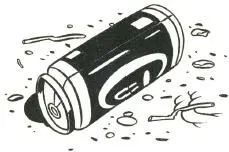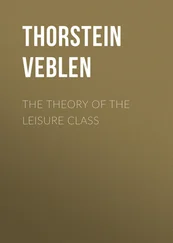Robert Leeson - The Third-Class Genie
Здесь есть возможность читать онлайн «Robert Leeson - The Third-Class Genie» — ознакомительный отрывок электронной книги совершенно бесплатно, а после прочтения отрывка купить полную версию. В некоторых случаях можно слушать аудио, скачать через торрент в формате fb2 и присутствует краткое содержание. Жанр: unrecognised, на английском языке. Описание произведения, (предисловие) а так же отзывы посетителей доступны на портале библиотеки ЛибКат.
- Название:The Third-Class Genie
- Автор:
- Жанр:
- Год:неизвестен
- ISBN:нет данных
- Рейтинг книги:5 / 5. Голосов: 1
-
Избранное:Добавить в избранное
- Отзывы:
-
Ваша оценка:
- 100
- 1
- 2
- 3
- 4
- 5
The Third-Class Genie: краткое содержание, описание и аннотация
Предлагаем к чтению аннотацию, описание, краткое содержание или предисловие (зависит от того, что написал сам автор книги «The Third-Class Genie»). Если вы не нашли необходимую информацию о книге — напишите в комментариях, мы постараемся отыскать её.
The Third-Class Genie — читать онлайн ознакомительный отрывок
Ниже представлен текст книги, разбитый по страницам. Система сохранения места последней прочитанной страницы, позволяет с удобством читать онлайн бесплатно книгу «The Third-Class Genie», без необходимости каждый раз заново искать на чём Вы остановились. Поставьте закладку, и сможете в любой момент перейти на страницу, на которой закончили чтение.
Интервал:
Закладка:
As she disappeared, Alec got up to cross Boner’s Street but flopped down again. He flattened himself to the ground. This meant getting brick dust all over his school trousers, but that was just too bad. He had to stay hidden because the front door of Number 85 opposite had opened and Ginger Wallace stood at the top of the steps, looking up and down the street.
Something was digging into Alec’s stomach, half a brick or a can. It hurt, but he dared not move because just then, Ginger crossed the street and stopped only a couple of yards away on the other side of the wall. Alec tried to make himself smaller but whatever was digging into him was killing him. He wriggled a hand under his body and pulled. The object moved and the pain eased. Ginger Wallace, whistling, charged off down the road.
Alec stood up and looked at the object in his hand. It was a can after all, a beer can with a new label. He started to throw it away, then stopped. There was something strange about the can. It was sealed, but it felt light, as though it were empty. How could a can be sealed and yet empty? It was like one of the locked room mysteries.
The road was empty now, except for Alec. He stuffed the intriguing can into his jacket pocket and brushed most of the brick dust off his trousers. Then he picked up his bag and moved slowly, stealthily down the pavement to the bottom of Boner’s. Here the railway arch spanning the street towered high above him. Like most of the other arches it was boarded up with thick, blackened planking and nailed to the planks was an old notice which read: BUGLETOWN ORDNANCE – KEEP OUT. Alec began to count the planks until he reached the fourteenth from the right. A few seconds later Boner’s Street was empty again. Alec worked this disappearing trick every afternoon on his way home from school. It was simple, if you knew how. The fourteenth plank was loose enough for him to push it back about nine inches and wriggle through to the other side. There are some advantages in being skinny.
Once through the fence and under the railway arch, Alec was in another world known only to himself. In front of him lay a strip of land, overgrown with elder bushes and rosebay willow herbs, littered with piles of moss-covered bricks, fallen chimneys and rotted rafters. At the centre stood a long low building with great holes in its roof. It was the ruin of an old factory, known locally as the “Tank”, though Alec had no idea why. On one side it was cut off by the railway arches and on the other ran the canal, disused now, its black ooze topped with green weed. In one direction the canal vanished under the railway arches; in the other it disappeared among the tangled bushes towards the goods yard and the low level railway, where Alec could hear the distant whistle of shunting engines.
Beyond the canal stood a tall wooden fence, as thick and solid as that which blocked the arches, and beyond the fence lay the estate where Alec’s family lived.
From his home you looked down a slope over the allotments and all you could see was this tall fence. People living on the estate, Mum in particular, liked it that way. They didn’t want to know about the Tank because it was an eyesore. But Alec didn’t care. The Tank was his fortress, his space ship, his hideout where he recovered when life’s disasters became too much for him.
To get home, Alec had to cross the canal. He could take the triumphal route, clambering up over the high iron gantry which once supported an overhead crane. Or he could go by the easier route, the one he took when he felt low. Twenty yards down the canal from the main Tank building lay a sunken barge, its timbers just showing above the slime. Alec had fixed loose planks from one timber to another to make a bridge. Today that was his chosen route.
He stopped by the main building to get his breath back and to make one more effort to get the brick dust off his trousers. As he brushed his clothes, his hand knocked against the can in his jacket pocket. He pulled it out and studied it again. It was definitely unopened. The metal seal was intact, but it was as light as a feather. He shook it, but no swishing sounds came forth. He lifted it up to his ear like a seashell. Then he nearly dropped it with surprise. He heard a fantastic sound, not like surf on a distant shore, but like snoring on a nearby bed.
Snoring? Alec took a good grip, shook the can and held it to his ear again. This time there was silence, but he had heard a noise. There was something funny about the can, without a doubt. The only one way to satisfy his curiosity was to open it; though perhaps he could save that as a treat for later on.
While he hesitated, his mind was made up for him. From the railway arch came the rumble of a train and a long drawn-out blast from its hooter: “Da-da-da-daaaa”. Alec stuffed the can in his pocket, picked up his bag and ran down to the canal. That signal meant only one thing. Dad was bringing the 3.30 diesel from Manchester into Bugletown Station. “Da-da-da-daaa” was a message to Mum: “Put the kettle on, I’ll be home by five o’clock.” It meant the time was already twenty-to-five and if Flash Bowden wasn’t in re-entry orbit soon, there’d be a cosmic disaster.
And there was.
In his haste to cross the canal, Alec never noticed that one of his planks was out of place, or rather, he noticed it as his foot was on the way down. He did an imitation jungle dance in the air, as he tried to jump over to the farther side, but the distance was too great. One foot landed safely on the bank but the other plunged down into five fathoms of black, green, greasy canal gunge.
“Oh, Nora,” groaned Alec. “Disasters two, triumphs nil.”

Chapter Two “ELEPHANT’S NEST UP A RHUBARB TREE”
KNEE-DEEP IN the canal, Alec grabbed wildly for the weeds and grass that grew on the bank. He lost hold of his school bag. His first clutch was on a bunch of nettles. He yelled, dropped back and grabbed again. This time, he dragged himself on to the bank with a great heave and sat down to work out how much damage had been done. It was a disaster all right. His trouser leg was coated in thick greasy slime up to the knee and so were his sock and trainer. He had to admit that he smelt terrible. He suddenly saw his bag slowly sinking out of sight into the ghastly depths of the canal. Lying flat on the towpath, he stretched out his arm and just managed to reach the handle and pull the bag out. The canal, reluctant to let go, made a rude, sucking noise.
Alec stood up and did his best to clean the satchel, which was fairly easy, and then his clothes, which was more difficult. A handful of grass took off the worst, but five minutes of frantic rubbing still left his trousers looking grotty and smelling worse. “Bowden,” he muttered, “you’ve put your foot in it.”
There was nothing to do but go home. His arrival would be at the most disastrous time, with Dad (saying nothing, but looking grim), Mum (looking grim and saying a lot) and his sister Kim, home from the biscuit works (laughing her head off). But there was no getting out of it. Forward, Bowden!
He crossed the waste ground to the fence. Here again, he carefully counted the boards to find the loose one only he knew about, pushed it forward. With a grunt and wriggle he was out at the foot of the slope below the council houses. No one was about, though it was a fine evening. From the windows came the white glow of televisions switched on, the clatter of cups and plates, and other pleasant sounds of people enjoying their tea without a care in the world.
Was there a chance, Alec wondered as he reached the bottom of his street, of getting in through the front door and sneaking straight upstairs to his bedroom, so avoiding the kitchen and the reception committee? It was a wild hope, he knew. Front doors on the estate were opened twice in a lifetime, for weddings and funerals, and to go in that way would be impossible without knocking. So it was round the corner of the house to the kitchen door. Alec braced himself to go in.
Читать дальшеИнтервал:
Закладка:
Похожие книги на «The Third-Class Genie»
Представляем Вашему вниманию похожие книги на «The Third-Class Genie» списком для выбора. Мы отобрали схожую по названию и смыслу литературу в надежде предоставить читателям больше вариантов отыскать новые, интересные, ещё непрочитанные произведения.
Обсуждение, отзывы о книге «The Third-Class Genie» и просто собственные мнения читателей. Оставьте ваши комментарии, напишите, что Вы думаете о произведении, его смысле или главных героях. Укажите что конкретно понравилось, а что нет, и почему Вы так считаете.












